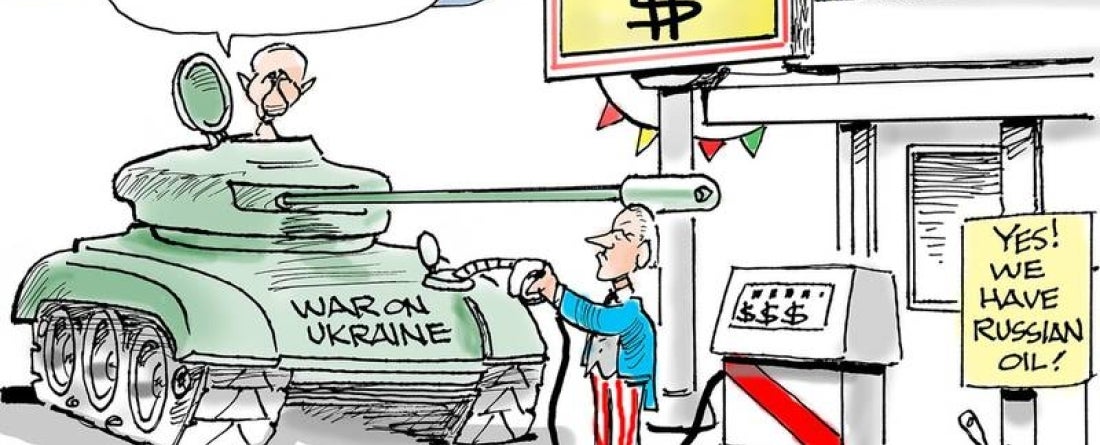
On Earth Day one year ago, President Biden announced an ambitious goal to reduce U.S. greenhouse gas emissions by 50% or more by 2030 from 2005 levels. Last week, Maryland legislators raised the bar by setting an aggressive goal to deliver 60% reductions by 2030. These domestic climate goals — if met — will have global impact. They will not only help us avoid a climate catastrophe by keeping global warming under 1.5ºC, but they will dramatically undercut a major revenue source for Russia and its brutal war on Ukraine: fossil fuels.
We have made significant progress to cut our emissions and reduce our dependence on dirty and dangerous fossil fuels. Congress passed the Bipartisan Infrastructure Law, which invests hundreds of millions of dollars in building cleaner transportation infrastructure. Additionally, a suite of federal regulatory actions that increase energy efficiency and improve fuel economy standards will reduce our emissions while helping Americans’ pocketbooks. There’s also been a continuing groundswell of climate action from states, cities, and businesses. Under Maryland’s newest climate law, for example, the state government’s passenger vehicle fleet will convert to 100% zero-emissions vehicles (ZEVs) by 2031.
On the other hand, even these new building blocks are simply not enough to get to the 2030 goal, and ambitious climate action from both the Federal government, states, cities and others will help us get across the finish line. The transportation sector — the single largest source of emissions in Maryland and the country at large — provides a good example of why. Our analysis, conducted in partnership with America Is All In, a coalition of leaders across the country supporting climate action, shows that existing transportation policies deliver roughly half of the total reductions needed by 2030 in this important sector. And with further action from cities, states and businesses in the form of rapid deployment of electric vehicles, expanded renewable energy, and accelerated ZEV mandates, our analysis shows that the U.S. climate goal remains within reach.
These actions will clean the air, grow the economy and provide more transportation options to all Americans. Furthermore, they will deliver a serious blow to Vladimir Putin by reducing U.S. oil use by one-third.
And transportation is not unique. Assessments have shown how an all-of-society approach such as this can deliver enhanced climate action on issues ranging from electricity to lands to methane. Our recent Blueprint 2030 report, for example, showed how actions from both the federal government and non-federal actors could reduce economy-wide emissions in all sectors by over 50% by 2030.
The actions we outline will deliver a more robust economy and help us avoid the worst impacts of climate, but they have two additional benefits. First, they reduce U.S. fossil fuel use, which shields American consumers and industry from price shocks, particularly relating to the global oil market. And second, they help cut the cost of clean technologies, so that our allies in Europe can more quickly reduce their dependence on Russian oil and gas.
The net effect is good for the climate, the economy and our security, but it will take a major push from both the federal government and non-federal actors in the coming year. Most urgently, for transportation, Congress should increase tax incentives for electric vehicles, the Biden administration should enforce stricter CAFE standards, and states should support the deployment of zero-emission vehicles. Other sectors can benefit from similar enhanced actions.
We’ve set our sights high, and the stakes are urgent. Every day, headlines from Ukraine remind us of the security risks of our fossil fuel dependence. A renewed near-term effort to deliver on our national and state climate goals will pay dividends now and for decades to come.
Nate Hultman (HULTMAN@UMD.EDU) is the director for the Center for Global Sustainability at the University of Maryland. He recently worked at the U.S. State Department where he led writing of the 2021 U.S. Long-Term Strategy, and previously worked at the White House where he helped develop the first U.S. climate target.
